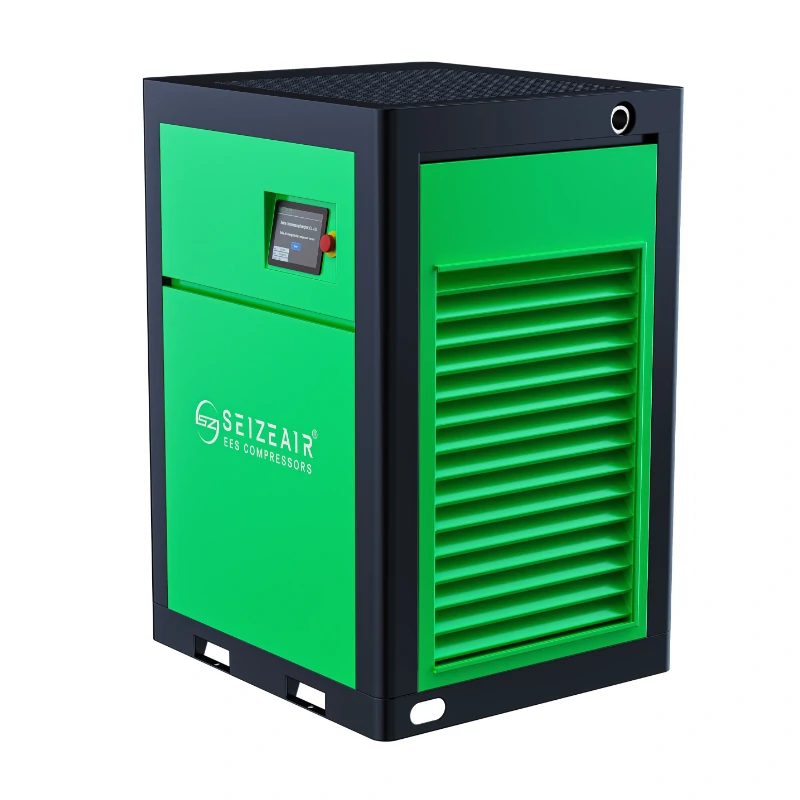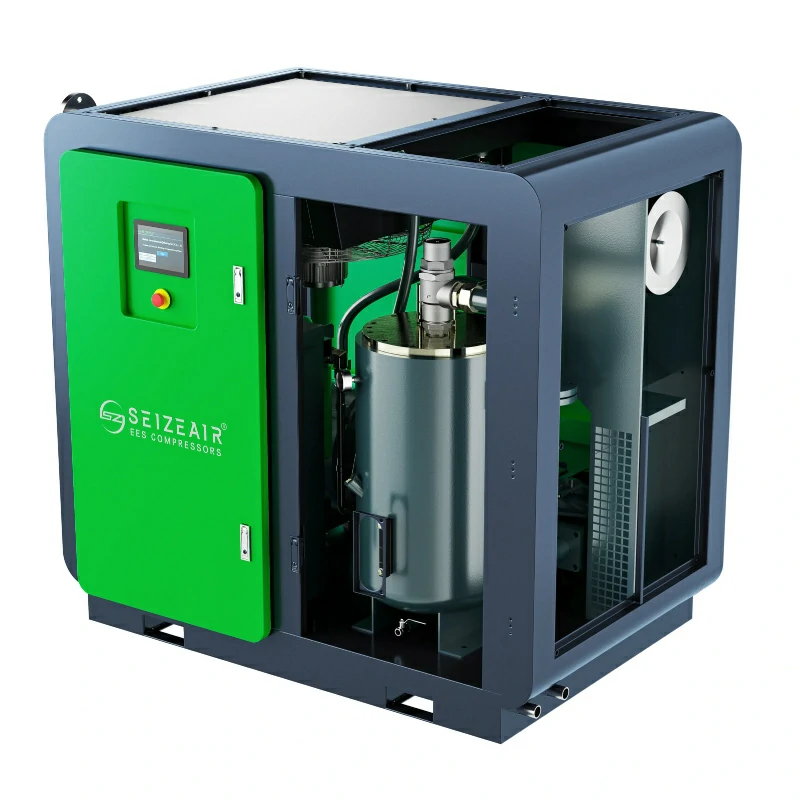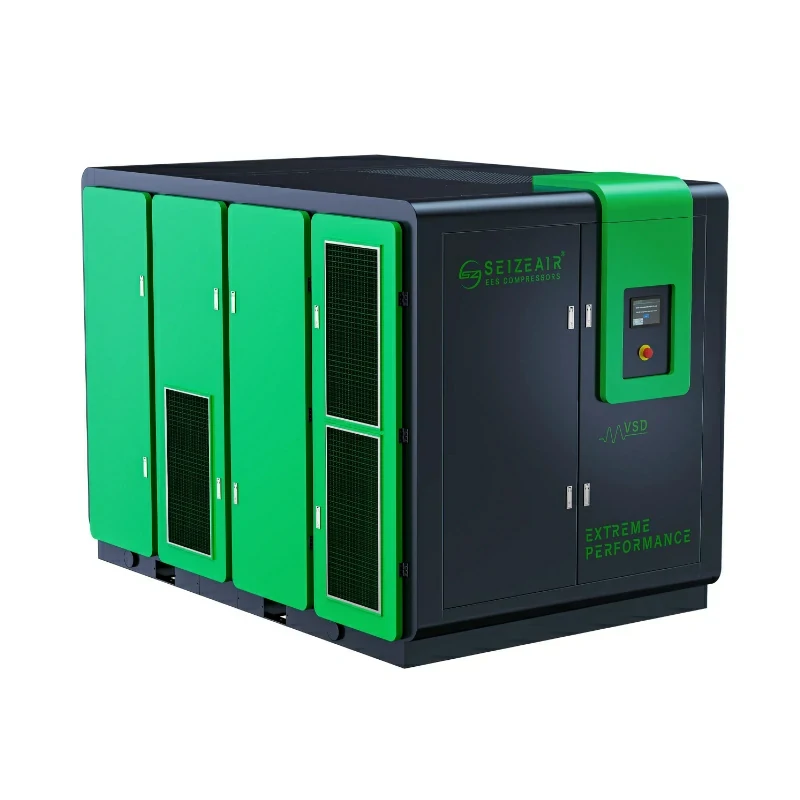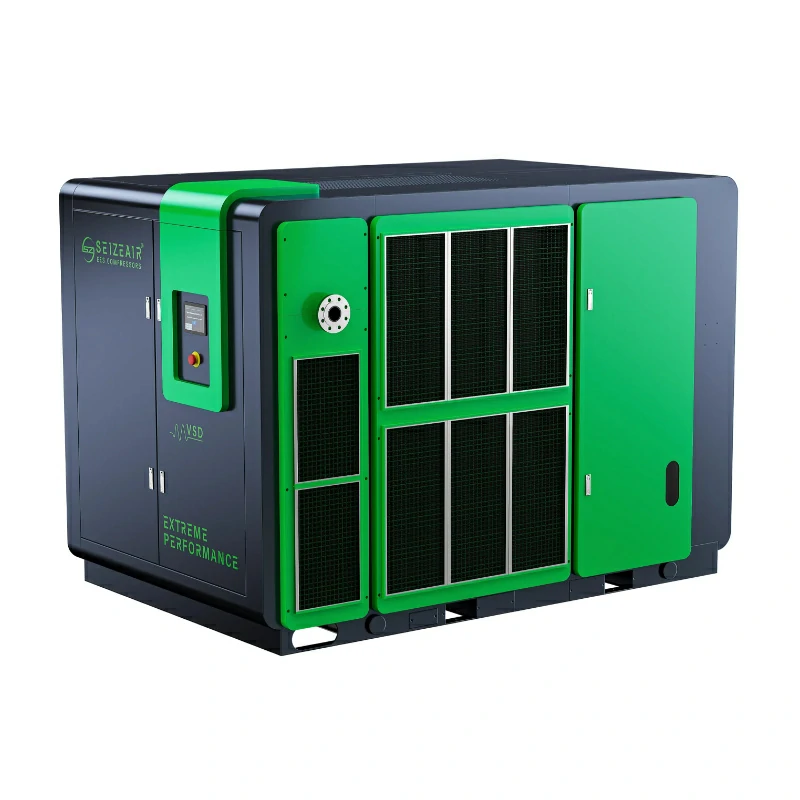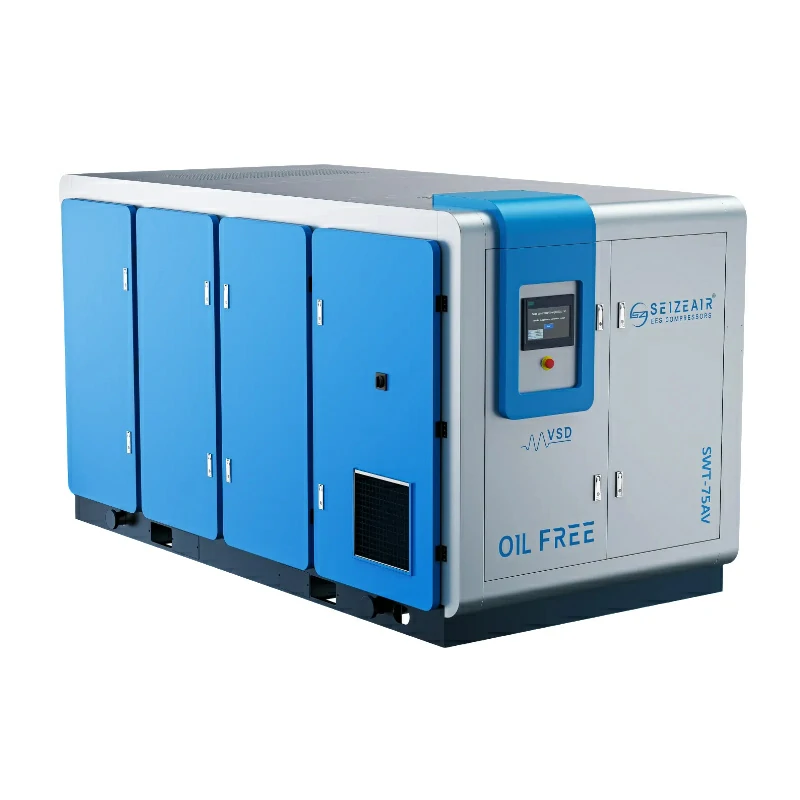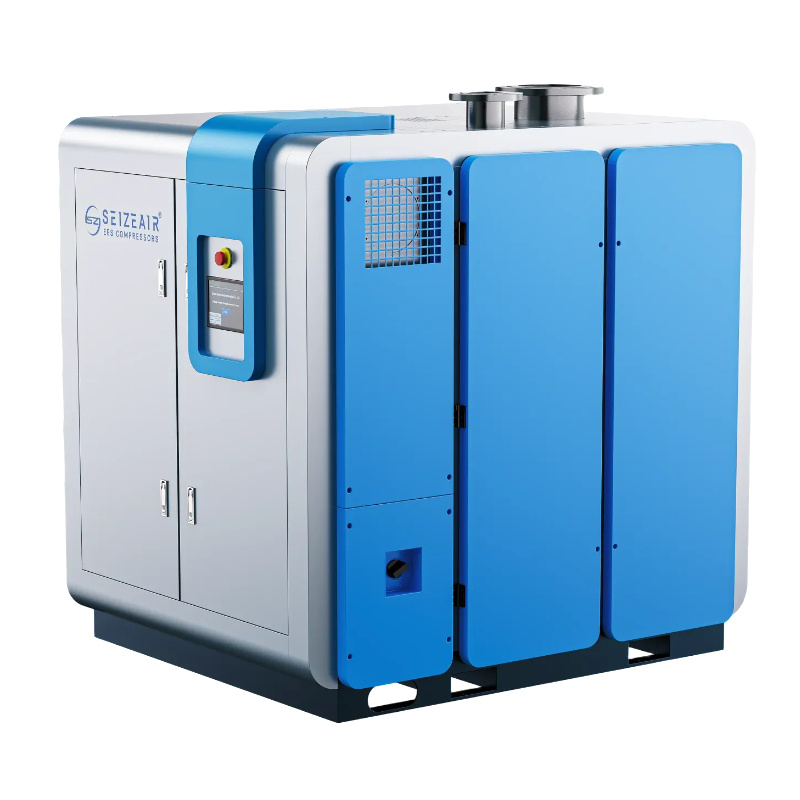In many industrial and commercial settings, a quiet air compressor is essential for maintaining a comfortable and safe work environment. Excessive compressor noise not only affects employee concentration but can also cause hearing damage, reduce productivity, and create safety risks by making communication harder. If you are facing issues with compressor noise, don’t worry—there are effective solutions available, and our experts can help you choose the best one.
Why Air Compressors Are Noisy
Air compressors generate sound for several reasons, including:
- Mechanical vibration – Moving parts and the motor create vibrations that resonate through the machine housing.
- Air intake and exhaust – The suction and release of compressed air produce high-frequency noise.
- Cooling fans – Fans used to cool the motor and compressor components add to overall noise levels.
- Poor installation – Improper mounting or lack of vibration isolation can amplify noise.
Typical Noise Levels of Industrial Air Compressors
Noise levels are usually measured in decibels (dB). To give you an idea:
- Reciprocating piston compressors: 85–95 dB
- Screw compressors (standard models): 65-72 dB
- Oil-free screw compressors (with sound enclosure): 60–70 dB
- Scroll compressors (designed for silent operation): 50–60 dB
For comparison, normal conversation is about 60 dB, while prolonged exposure to noise above 85 dB can cause hearing damage according to OSHA.
Tips to Reduce Air Compressor Noise
Here are some practical methods to minimize air compressor noise in your workplace:
- Choose a low-noise model – Opt for compressors specifically designed with sound enclosures or noise-reducing technology.
- Install soundproof enclosures – Acoustic panels or compressor cabinets can significantly reduce emitted noise.
- Use vibration pads – Mounting the compressor on anti-vibration pads helps absorb mechanical noise.
- Maintain proper ventilation – Overheating fans often run at higher speeds and create excess noise; proper cooling reduces this problem.
- Regular maintenance – Worn parts, loose fittings, or clogged filters can increase noise levels.
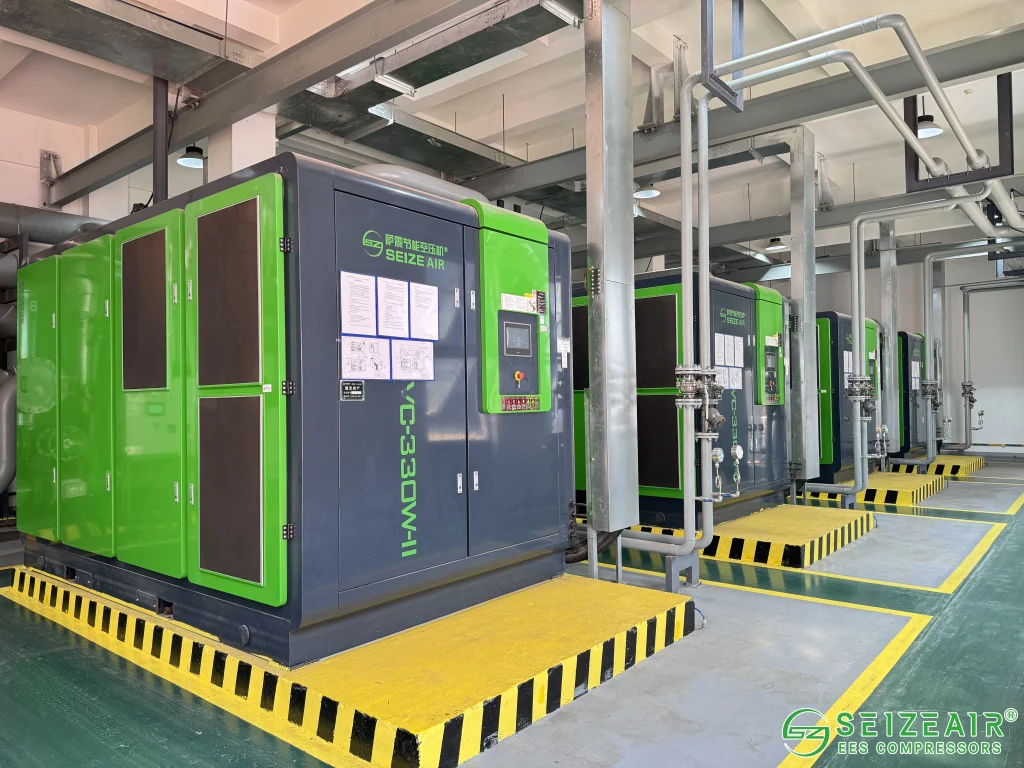
Benefits of Using a Low-Noise Air Compressor
Investing in a low-noise compressor brings measurable advantages:
- Improved workplace comfort – Employees can focus better without constant background noise.
- Enhanced safety – Easier communication on the shop floor reduces the risk of accidents.
- Compliance with regulations – Meets occupational health and safety noise standards.
- Professional image – A quieter workspace is more welcoming to clients and partners.
Choosing the Right Quiet Air Compressor
When selecting a quieter compressor, consider:
- The type of application (industrial, medical, food & beverage, electronics).
- The required airflow and pressure without compromising performance.
- The decibel rating provided by the manufacturer.
- Energy efficiency and long-term maintenance costs.
If you are unsure which solution fits your needs, our experts can provide tailored recommendations.
Get Expert Help for Your Compressor Noise Problems
Noise doesn’t have to be an unavoidable side effect of air compression. By choosing the right equipment and applying effective noise-reduction methods, you can significantly improve your work environment.



